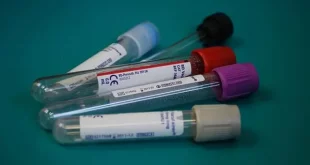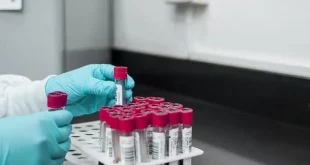Imaxshift.com – Understanding how to get alcohol out of your system is crucial for health, safety, and compliance with laws like driving regulations. The body processes alcohol through metabolism, primarily in the liver, and the rate of this process can vary greatly depending on several factors.
Metabolism and Elimination of Alcohol
Alcohol metabolism is a consistent process where the liver breaks down alcohol at a rate of about one standard drink per hour for an average person. However, several factors influence this rate, including age, gender, liver health, and whether other drugs or medications are present. The body can’t metabolize alcohol faster than this rate, leading to increased blood alcohol concentration (BAC) and potential intoxication when consumption exceeds the liver’s processing capacity.
Alcohol can be detected in the body through various tests for hours or days after consumption, with hair tests showing consumption for up to 90 days. Blood tests detect alcohol for up to 6 hours, breath tests for 12-24 hours, saliva tests for 12-24 hours, and urine tests can detect alcohol from 12-80 hours, depending on the testing method used.
Supporting the Body’s Natural Detoxification Process
While it’s not possible to expedite the natural detoxification process significantly, certain practices can help support and optimize the body’s efforts:
- Hydration: Drinking plenty of water helps mitigate alcohol’s dehydrating effects and aids in flushing out toxins.
- Nutrition: Consuming foods rich in antioxidants, like fruits and vegetables, supports the body in neutralizing harmful substances.
- Exercise: Physical activity can increase blood circulation and promote the elimination of alcohol byproducts through sweat.
- Rest: Adequate rest is crucial as alcohol can disrupt sleep patterns, impacting recovery.
- Time: Ultimately, time is the most significant factor in eliminating alcohol from the system, with the liver processing alcohol at a specific rate.
Factors Influencing Alcohol Metabolism
The rate at which alcohol is metabolized and eliminated from the body can vary based on:
- Body Composition and Health: Weight, health conditions, and body composition impact how quickly alcohol is processed.
- Age and Gender: Metabolism rates can differ between individuals, with factors like age and gender playing a role.
- Consumption Rate and Quantity: The type and amount of alcohol consumed influence how long it stays in the system.
How To Get Alcohol Out Of Your System Before Surgery?
Removing alcohol from your system before surgery is critical for minimizing complications and ensuring a smooth recovery process. Alcohol is primarily metabolized by the liver, with about 90% being broken down into water and carbon dioxide. The remaining 10% exits the body through urine, breath, and sweat. The rate at which your body processes alcohol can vary based on several factors, including age, weight, and overall health. Typically, the body can process one standard drink per hour, but this can vary significantly among individuals.

Here are some strategies to help get alcohol out of your system before surgery:
- Understand Your Body’s Alcohol Processing: Recognizing that the body processes approximately one standard drink per hour can help you gauge how much time is needed to clear alcohol from your system before surgery.
- Support Your Liver: Since your liver plays a significant role in metabolizing alcohol, supporting liver function is crucial. This can be achieved through adequate rest, staying hydrated, and possibly incorporating foods or supplements that support liver health, such as those containing antioxidants.
- Stay Hydrated: Drinking plenty of fluids, especially water, can help facilitate the elimination of alcohol through urine. Hydration also helps mitigate the dehydrating effects of alcohol consumption.
- Eat Nutritious Foods: Having food in your stomach can slow the absorption of alcohol. Consuming balanced meals that include complex carbohydrates, proteins, and healthy fats can also support your metabolism and overall health during alcohol detoxification.
- Seek Medical Guidance for Alcohol Withdrawal: If you’re a heavy drinker, it’s crucial to undergo alcohol withdrawal under medical supervision due to potential withdrawal symptoms, which can range from mild to severe. Medical professionals can provide the necessary support and treatments to manage these symptoms safely.
- Consider Detoxification Programs: For individuals struggling with alcohol dependence, joining a specialized detox program may offer structured support and resources to safely remove alcohol from the system.
It’s also important to note that while certain foods and activities can support the process of eliminating alcohol from your body, there is no quick fix to instantly remove alcohol from your system. The key is giving your body enough time to metabolize the alcohol naturally and seeking professional help when necessary.
For detailed guidance and personalized advice, it’s always best to consult with your healthcare provider, especially when preparing for surgery. They can offer specific recommendations based on your health status and surgical requirements.
How To Get Alcohol Out Of Your System When Breastfeeding?
When breastfeeding and considering alcohol consumption, it’s crucial to understand how alcohol interacts with breast milk and what steps can be taken to minimize any potential impact on the baby. Alcohol enters your breast milk at levels similar to those in your bloodstream, meaning that any alcohol you consume will be passed to your baby through breastfeeding. Newborns and young infants process alcohol at about half the rate of adults, which can affect their development and sleep patterns. Studies have indicated that exposure to even moderate levels of alcohol through breast milk could potentially impair a baby’s motor development and alter sleep patterns.
To mitigate the effects of alcohol on your baby while breastfeeding, here are some guidelines based on information from the Centers for Disease Control and Prevention (CDC) and the Mayo Clinic:
- Time Alcohol Consumption Appropriately: If you choose to drink alcohol, it’s advised to do so just after breastfeeding or pumping, not before. This timing allows your body time to metabolize the alcohol before the next breastfeeding session. For a standard drink, it typically takes about 2 to 3 hours per drink for alcohol to clear from breast milk, depending on factors such as your body weight.
- Limit Alcohol Intake: Moderate alcohol consumption, defined as up to one standard drink per day, has not been shown to be harmful to infants, especially if the mother waits at least 2 hours after consuming a single standard drink before breastfeeding. This helps to ensure that the alcohol levels in the breast milk are minimized when the baby feeds next.
- Understand “Pumping and Dumping”: The practice of “pumping and dumping” (expressing breast milk and then discarding it) after drinking alcohol does not speed up the elimination of alcohol from your system. Alcohol levels in breast milk will decrease as your blood alcohol level decreases. However, if you’re uncomfortable breastfeeding during this time or need to maintain your milk supply and prevent engorgement, pumping and dumping can be a practical approach. It’s essential to know that this practice doesn’t reduce the alcohol content in breast milk faster but can help manage physical discomfort and milk supply.
- Planning and Preparation: If you plan to consume alcohol, consider expressing and storing breast milk beforehand. This way, you can have alcohol-free milk available for your baby during the time it takes for the alcohol to clear from your system.
- Safety Considerations: Never care for your infant while under the influence of alcohol, as it can impair judgment and the ability to safely care for your baby. If you have consumed alcohol, ensure a sober adult is available to help care for the infant.
These guidelines are aimed at striking a balance between the occasional consumption of alcohol by breastfeeding mothers and maintaining the safety and well-being of their infants. For personalized advice, it’s always best to consult with a healthcare provider familiar with your health history and circumstances.
FAQ
- Can food or coffee sober you up faster?
- Eating food can slow the absorption of alcohol, potentially mitigating some of its toxic effects, but it does not speed up the elimination process. Similarly, while caffeine may counteract some of alcohol’s depressant effects, it does not expedite alcohol clearance from the body.
- How long does it take for the liver to detox from alcohol?
- The detoxification timeline varies, with factors such as drinking habits, health conditions, and nutritional status playing a role. Some research suggests that a few weeks of abstinence can reduce liver inflammation and improve liver function, but longer periods of sobriety may be necessary for significant recovery, especially after long-term alcohol use.
Conclusion
The process of getting alcohol out of your system is primarily a function of time and the body’s natural metabolic capabilities. Supporting this process through hydration, nutrition, rest, and abstaining from further alcohol consumption can help optimize recovery. Understanding the factors that influence alcohol metabolism is essential for managing consumption and maintaining health.
For more detailed exploration and expert insights, the sources from Amy Myers MD, Ria Health, CDC, and the Cleveland Clinic provide comprehensive information on the subject.
 Imaxshift.com : Insurance, Finance, Technology & Gadget Blog
Imaxshift.com : Insurance, Finance, Technology & Gadget Blog



